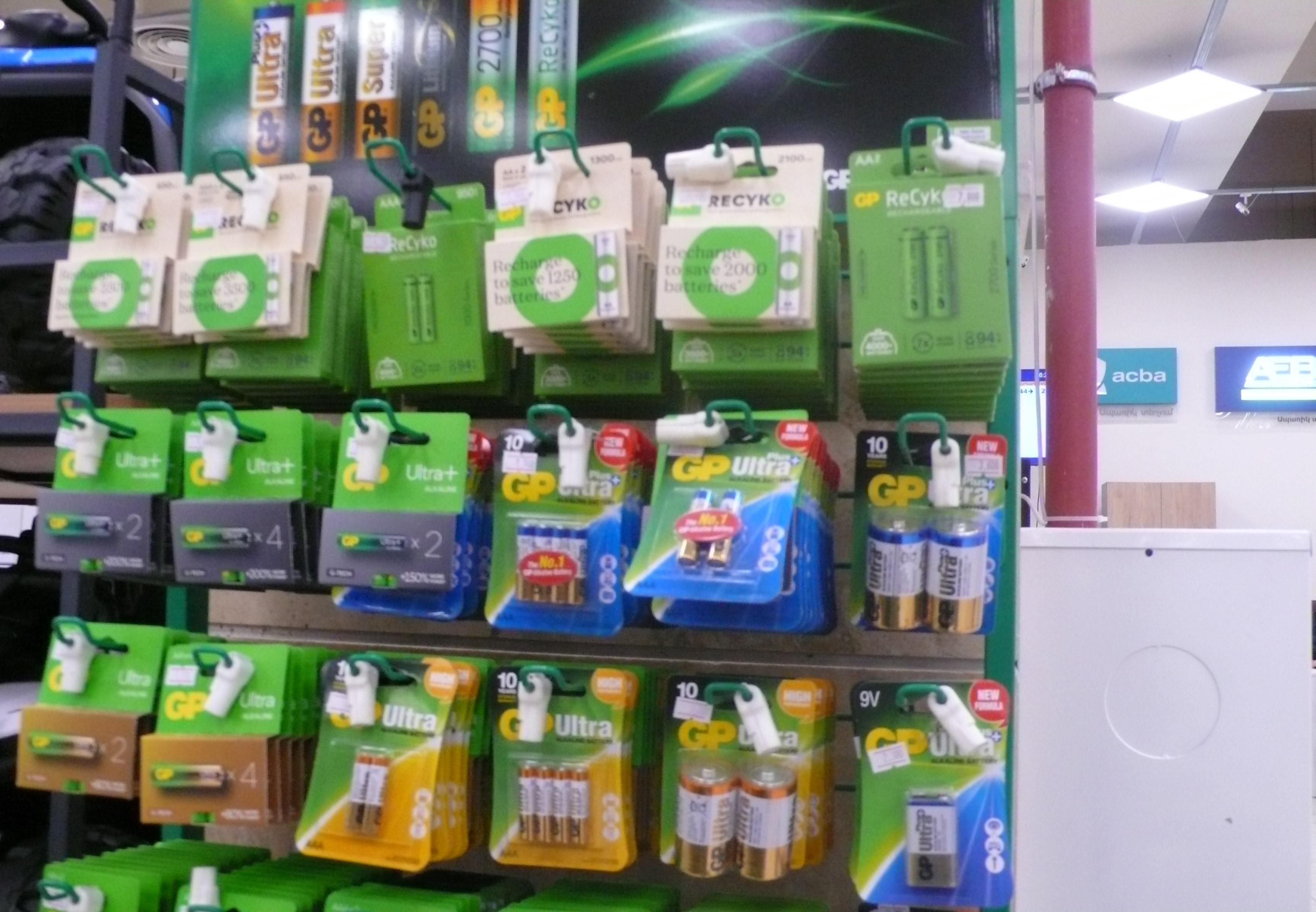
Battery Waste In Armenia: Aplliance Importer Launches Recycling Program
Vega, a large household appliance importer/retailer in Armenia, two years ago launched an ambitious program to collect and recycle both the appliances and the batteries they use.
Disused and faulty appliances are disassembled , the waste handed over for recycling, and the money is transferred to the “My Forest Armenia” organization, which conducts annual reforestation work in the country’s Lori Province.
Vega has noticed that the production of cordless household appliances and power tools is increasing yearly. What to do with the obsolete batteries remains problematic.
“Up to ten tons of batteries are imported into Armenia annually, which is quite a big threat for this small country. Several times more batteries are imported and buried in the ground than the used uranium from a nuclear power plant,” says Vega Director of Development Artur Chobanyan.
A sign posted in the company’s stores reminds customers that one battery, once buried in the ground, poisons up to twenty square meters of soil and up to four hundred liters of groundwater. “The water flows to the Ararat Valley, where fish are raised. In other words, the poison released from these batteries throw returns to us in a circular cycle in the form of food,” Chobanyan says.
Importers of household appliances in Armena are charged an environmental fee during customs clearance. Vega, which has been operating in the Armenian market for twenty-three years, is convinced that these funds are not used to protect the environment. The company, thus, decided to implement its own environmental programs.
"I import a product, which I make money on, and then that product becomes waste. I am obliged to provide money so that another organization can deal with waste disposal," says Chobanyan
Vega Gets Hazardous Waste Reuse License
Vega received a license for hazardous waste reuse from the Ministry of Environment (MoE) in the summer of 2023. The license allows it to collect, transport, store, disassemble and utilize waste generated from any household appliance, including batteries.
The company has an authorized area where batteries, which are currently considered hazardous waste, are stored indefinitely in safe conditions.
“We want to understand the collection rate, which is not high. While up to ten tons of batteries are imported annually, so far, we have barely collected five hundred kilograms. Earlier, people collected and stored them and handed them over to us,” says Chobanyan
The license allows Vega to accept batteries only in its stores and storage facilities. Collection boxes can’t be placed in public places. There are twenty such boxes in the entire country. Customers who hand in batteries receive cashback on their savings cards. Batteries are also bought with purchase receipts.
Few countries, even EU member states, don’t have the capacity to recycle them. There are just four plants throughout the EU that accept and neutralize batteries.
The European Parliament and the Council adopted the new Batteries Regulation on July 12, 2023 that seeks to minimize the environmental impact of this exponential growth in light of new socioeconomic conditions, technological developments, markets, and battery usages.
The European Commission’s Waste Framework Directive sets the basic concepts and definitions related to waste management, including definitions of waste, recycling, and recovery.
A new EU regulation on waste shipments entered into force on May 20, 2024 that ensureս that it does not export its waste challenges to third countries and contributes to environmentally sound management of waste. Turkey is the main destination for EU waste. For intra-EU shipments, different procedures apply depending on the type of waste, its envisaged treatment, and the destination country.
Vega believes that neither Georgia nor Iran will allow it to ship batteries through their territory, so they must be recycled on site. The company has found partners in Russia who have mobile recycling equipment that can be shipped to Armenia.
It’s an expensive proposition, however, and there’s a minimum quantity of batteries needed to make the venture feasible.\
“Serious public relations work must be conducted so that consumers realize that discarding batteries in the soil is dangerous. Otherwise, our work will have negligible effect. The company is ready to publicize all this, but we don’t think it’s likely that people will travel for kilometers to hand over a few batteries,” says Chobanyan.
Sorting disused single-use batteries is the first and most crucial step in the recycling process.
When the metallic cylinder of zinc-carbon batteries corrode, it diffuses into the soil and the water supply. Too much exposure to these heavy metals can cause neurological issues and cancer.
Nickel-cadmium is another battery that often finds itself in a landfill. When the metallic cylinder of a Ni-Cd battery corrodes, it seeps into the soil. This gets into our water resources and food systems.
Chobanyan also seeks a problem down the road of what to do with the batteries used to store power derived from the growing number of solar power panels in Armenia.
 Videos
Videos Photos
Photos
Write a comment